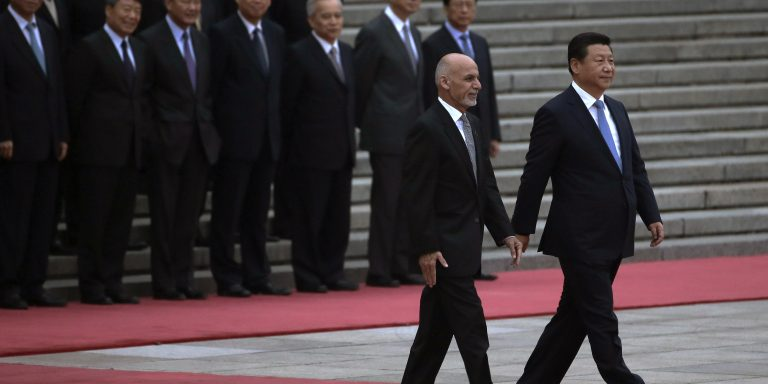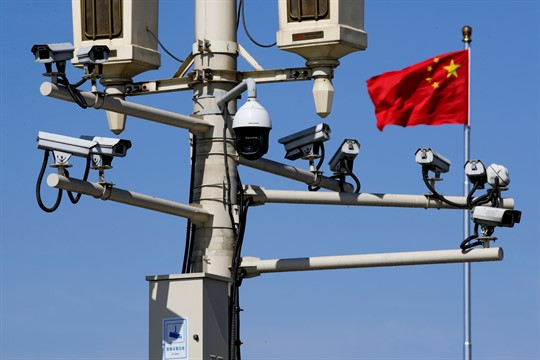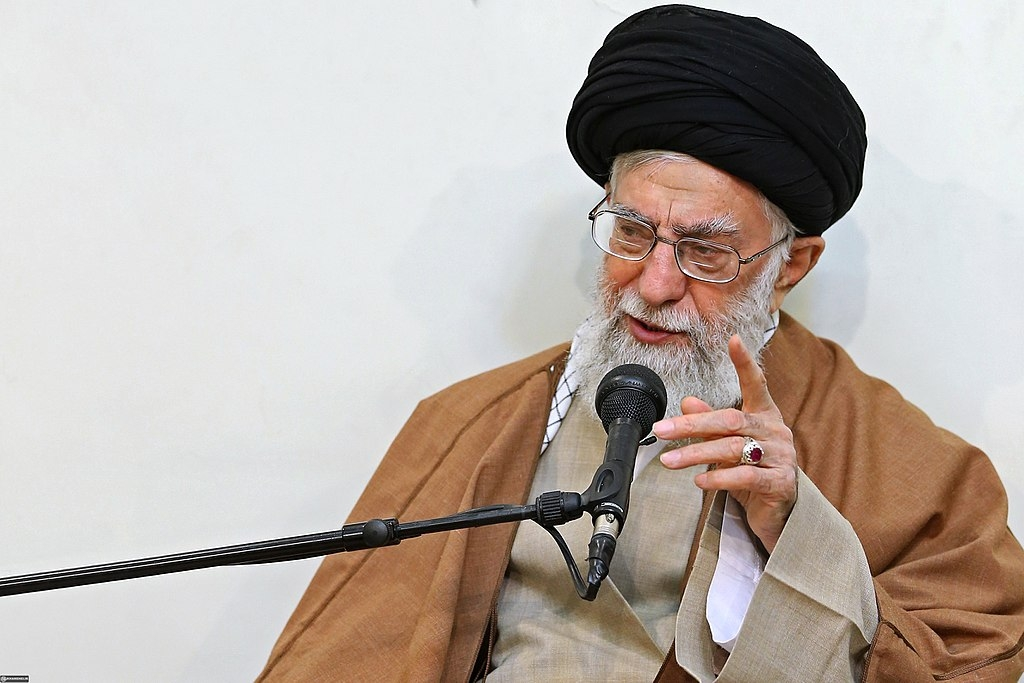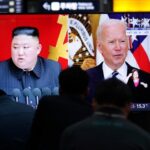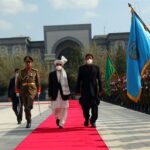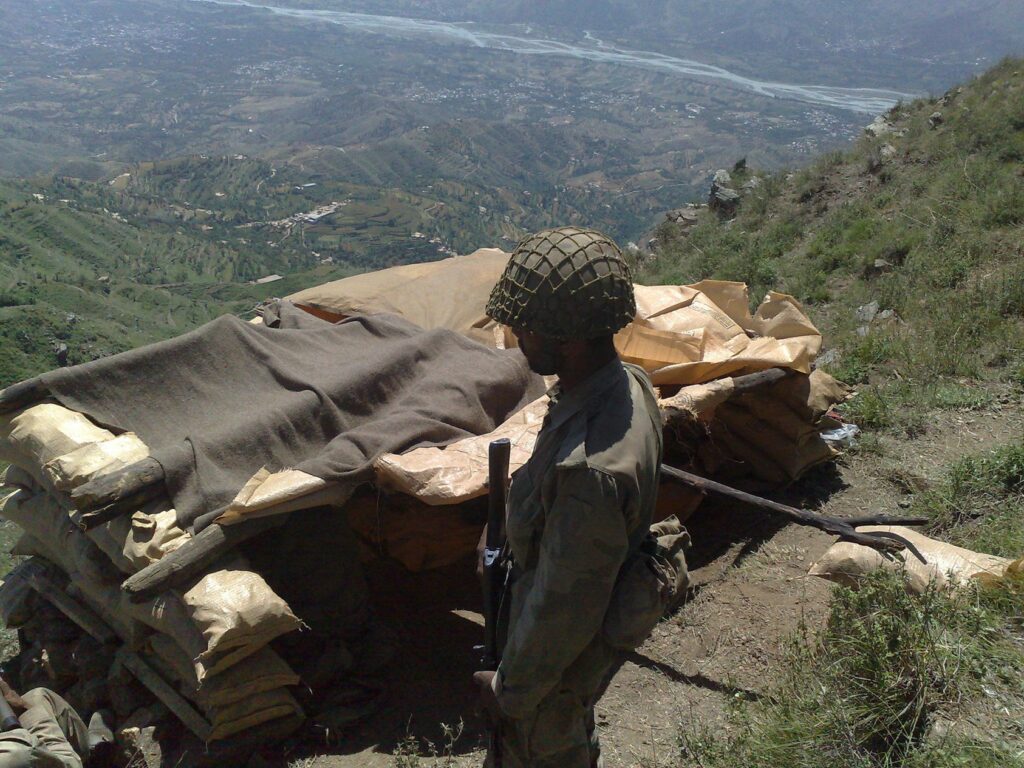
In last week’s episode of “America Competing with a Rising China,” the geopolitical equivalent of a TV series, Joe Biden took the wheel of a Ford truck and all but burned rubber as he pulled away from reporters who had come to witness the stunt.
Biden’s visit came on the eve of Ford’s announcement of a new, all-electric version of its model F-150, the most popular motor vehicle in the United States, and he used it to enlist the automaker’s innovations in his ongoing campaign to prove not just that “America is Back,” whatever that means, but that the country can outcompete its biggest rival, China.
Invocations of China as a summons to a restoration of American greatness have been coming fast and furious under this president, who has also repeatedly wielded the specter of Chinese power to justify his policy priorities.
Beating China is the reason why the country needs huge new investments in infrastructure that go well beyond traditional definitions of that term. Outcompeting China and thereby supposedly “owning the future” is invoked as a leading motivation behind new climate change measures, including research into limiting carbon emissions. China is a driving factor behind both a return to the moon and an effort to break new ground on Mars. For many, China is also the reason to step up faltering efforts to increase access to COVID-19 vaccines around the world—not the impact of the disease itself.
So widespread is the use of China as the competitive rationale or excuse cited for this thing or the other these days that one could go on almost endlessly in this vein. But any reader who follows the news will have already gotten the idea.
What if this approach to formulating policy rationales was mostly wrong? This is a more complicated question than it might at first appear and deserves examination on at least two separate bases that warrant more careful consideration.
In the West, at least when I was a child in the ’60s, some of the most widely learned fairy tales involved the manipulative invocation of false or trumped-up threats. The most famous of these, of course, is “The Boy Who Cried Wolf,” a fable of Greek origins attributed to Aesop that dates from the 6th century BCE. In tales like these, things usually don’t end well for the party doing the manipulating—or threat inflation, in the lingo of international relations theorists—and it’s my creeping suspicion that overuse of China as a motivating factor or justification for just about whatever crosses the minds of the American political class also risks losing its potency the more routine it becomes.
Invocations of China as a summons to a restoration of American greatness have been coming fast and furious under Biden, who has also repeatedly wielded the specter of Chinese power to justify his policy priorities.
There are serious reasons to compete with China in terms of concerted national policy. Artificial intelligence—an area that requires big, long-term investments in basic science—strikes me as one such area. But to be smart about using China as a rationale for policy changes requires being extremely selective. By contrast, what does it mean to make a much broader claim such as, for example, that the Pentagon should compete with a country as large and powerful as China—a nation, moreover, which has deep and growing global interests? Should that place the United States back in John F. Kennedy-era territory, when the Soviet Union could be conjured as a threat in every quarter and the United States had to be ready, as JFK said, to “pay any price” to compete with it?
There are many good, and indeed interrelated, reasons to think otherwise. These start with a rational assessment of where America’s limited resources can best be spent, with the Biden administration wisely so far seeming to think that domestic renewal can bring far better payoff than the use or flexing of muscle overseas. Opinion polling of various sorts, meanwhile, suggests that substituting China for the wolf in Aesop’s fable already lacks the motivating power that some imagine. As far as China’s image has fallen with the American public under its leader Xi Jinping, there is little reason to think that Americans are eager to sign up for a competitive crusade that edges toward a new cold war with Beijing. In fact, as one poll found, competition with Europe is as potent a cause for concern among the American public as is competition with China.
The second big categorical reason to resist the impulse to try to utilize China as the motivating idea behind all manner of policies is that, by doing so, you increase the risk of getting the enemy you seek. If beating China becomes the be all and end all of American purpose, what do we imagine the impact of that will be on China and its motivations?
It is true that China has been fixated on surpassing the West, and the United States in particular, at least since Mao Zedong ruled the country. Deng Xiaoping, Mao’s capitalist successor, shared this obsession, but he is not remembered that way, and his subtlety regarding this matter is what bought his country the space, time and healthier focus it needed in order to reform itself and reset its competitive trajectory vis-à-vis the West.
Deng’s famous watchword was, “Hide your capacities and bide your time,” meaning not only that China should not speak constantly of threats or openly threaten others, but that China shouldn’t even emphasize global competition in its discourse. The maxim might be translated as, “Work hard and with purpose, and keep quiet about your ambitions and rivals.”
The United States would be well served to adopt some of this spirit today. This would entail relentless focus on getting its own house in order, not only by strengthening the country in conventional economic or national security terms, but by doubling down on making it a better place—meaning a fairer, more open and equitable society, with greatly renewed vigor for restoring a democracy more imperiled than it has been in decades. Among other things, if it can do so without the need for constantly mentioning rivals or deepening interstate enmities when they are gratuitous, the United States might find that it has much more success in winning friends and influencing people. That occurs more readily when virtues like these are taken to be real and embraced for their own reward.
The final piece in a more virtue-based approach involves finding ways to expand cooperation with China—and with more imagination and political courage, opportunities for this abound. Combating COVID-19 strikes one as the most obvious example. Why should the world care whether the United States or China is leading or winning in a public health catastrophe of this magnitude, especially when so much of the human population remains unprotected?
Space exploration is yet another. If the United States and Russia could cooperate on such an endeavor, as they did in the 1970s and 1980s, why shouldn’t Washington and Beijing? Here is a suggestion for those fond of taking the lead. The Biden administration should extend the hand of constructive partnership, and if it does so, it could find that the doors to many other possibilities begin opening. Or it can keep crying wolf and see if the fable has a happier ending this time around.
